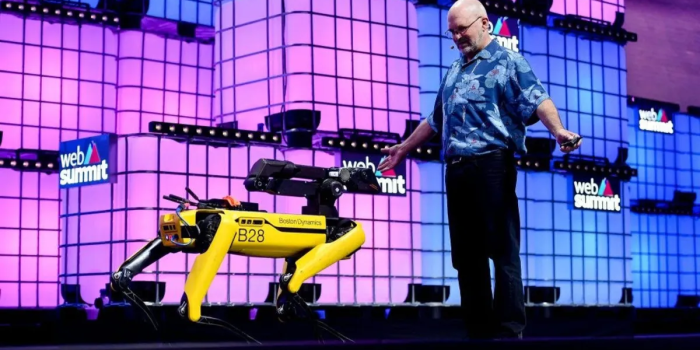In a recent interview on the Lex Fridman podcast, Marc Raibert, the renowned roboticist and founder of Boston Dynamics, delved into the expansive field of robotics, reflecting on its past, present, and potential future.
Raibert’s journey into robotics was ignited by a simple yet powerful image: a disassembled robotic arm he encountered in 1974. This encounter sparked a relentless pursuit of innovation, leading him to challenge conventional design paradigms. Rather than creating slow and methodical machines, Raibert aimed to infuse his robots with the energy and dynamism inherent in human and animal movements.
Raibert played a pivotal role in developing iconic robots during his tenure at Boston Dynamics. One notable project involved the creation of a surgical simulator boasting advanced force feedback, showcasing the team’s commitment to nuance and responsiveness. Despite the technical prowess of their endeavors, strategic evaluations prompted a pivot towards breakthroughs that would propel Boston Dynamics to prominence.

Raibert’s approach to robotic design emphasized functional excellence tailored to the human environment rather than strict emulation of natural forms. Early creations like the hopping “pogo-bots” exemplified this ethos, embodying a movement that defied predictability while serving practical purposes.
As the head of the Boston Dynamics AI Institute, Raibert now aims to combine the physical agility of his robots with cognitive intelligence. This venture focuses on expanding capabilities in perception, learning, and decision-making, complementing the mechanical intelligence for which Boston Dynamics is renowned.
Discussing Elon Musk’s contributions to the field, Raibert expressed both admiration and a competitive spirit. He envisioned collaborative efforts, such as robot summits, as catalysts for accelerated innovation across established and emerging teams. Raibert hinted at Musk’s potential inspiration from Boston Dynamics’ Atlas robot, expressing a desire to host a gathering where robots like Atlas and Musk’s Optimus could interact.

Addressing concerns about super-intelligent robots, Raibert emphasized a continuum of technological advancement. He viewed AI-powered systems as valuable tools rather than existential threats, echoing the transformative nature of past technologies.
At the Boston Dynamics AI Institute, Raibert remains committed to a future where robotic companions seamlessly integrate into everyday life. His vision encompasses machines capable of remarkable physical feats and profound levels of intelligent support, heralding a transformative era in humans’ lives and work.


